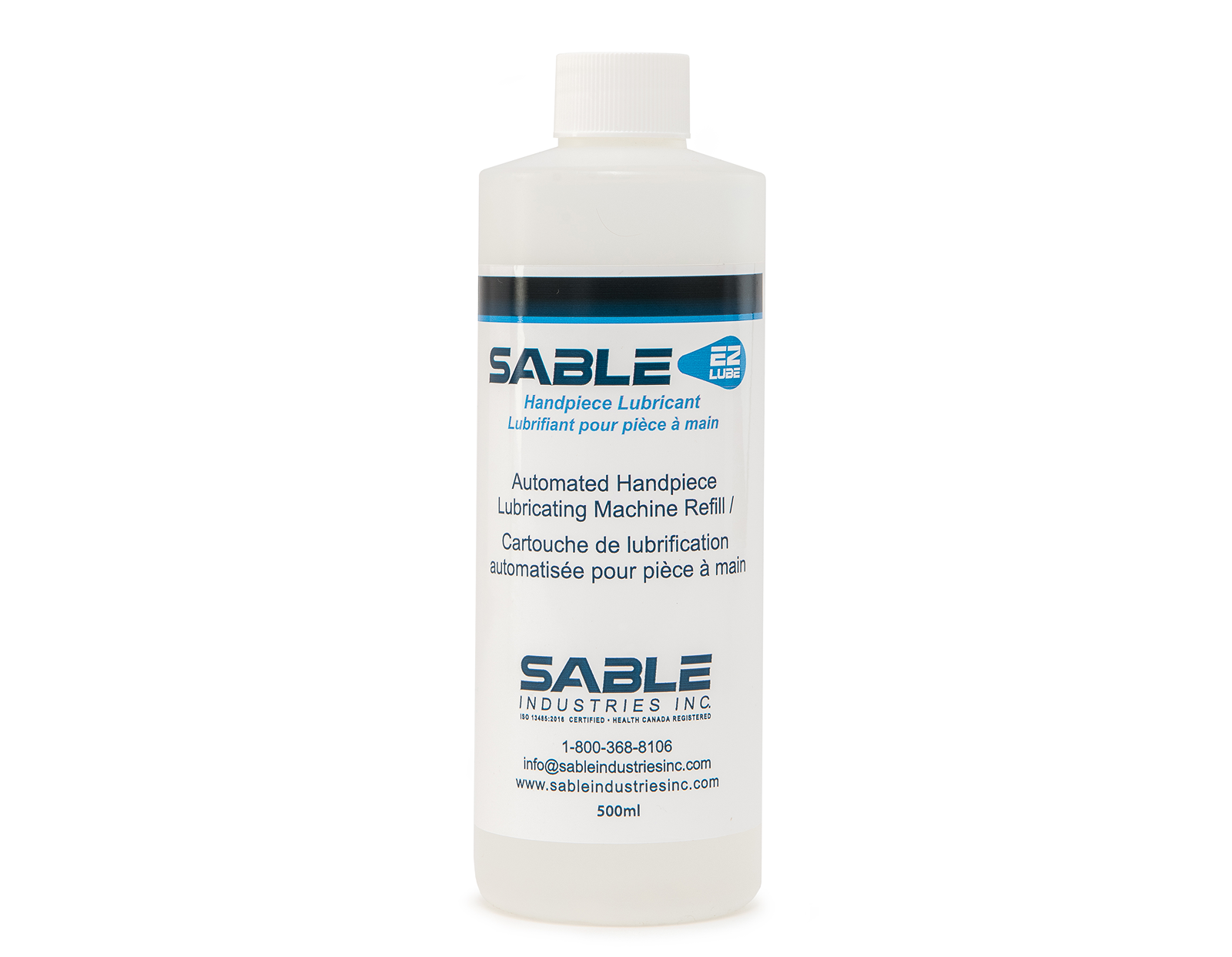Let’s say you purchase a Porsche or a Ferrari.
Regardless of how you treat the luxury vehicle, for the first few drives, you’re going to have a whole lot of fun in a car that handles like a dream.
But let’s then imagine you aren’t really one for oil changes. In this case, your fun time will soon turn into a rough ride because you weren’t properly caring for your machine.
What does all this car talk have to do with being a dentist? Well, you have pieces of equipment – namely, dental handpieces – that require just as much care and attention to keep functioning optimally.
You could spend half your budget on your handpiece and enjoy some brief, seamless, high-performance usage. Yet, if you don’t use lubricant (or, more specifically, the appropriate lubricant) all that money you spent will go to waste.
Your handpiece won’t perform the way it should, much to the detriment of your patients and your reputation as a dental practitioner.
So, how do you choose the best possible lubricant for your dental handpiece?
What Makes a Quality Dental Handpiece Lubricant?
The first ingredient you’ll find in a lubricant is your base oil. From there, other ingredients (such as thickener) will be chosen based on what your lubricant is for.
A thickener consists of fibrous particles, which function as a sponge to hold the oil firm, making it more viscous and more like grease.
The types, quantities, and qualities of these ingredients impact several aspects of the performance of the lubricant and, in turn, the performance of your handpiece. These factors include:
- Viscosity: refers to the lubricant’s resistance or thickness; when the product’s viscosity is higher, it means there’s higher flow resistance. Kinematic viscosity is the lubricant’s absolute viscosity divided by its density at equal temperatures.
- Weight: related to a lubricant’s viscosity, weight generally refers to the product’s ability to flow seamlessly at given temperatures
- Runout: lubricant’s ability to resist increased temperatures, which typically makes it less viscous.
- Stability: a lubricant’s resistance to a viscosity change resulting from mechanical stress.
Your dental handpieces’ cleaning, sterilization, and overall performance rely heavily on the lubrication process, so you need to be consistent with it.
Furthermore, you need to ensure you’re purchasing the best possible lubricant for your specific handpiece – so, here’s what you need to consider:
- Lubricants with low viscosity levels are best for straight and contra-angle dental handpieces. On the other hand, higher viscosity lubricants are better in more heated environments.
- Mineral oil-based lubricants (aka “white oils) are the most stable in high-temperature environments, maintaining stability in both colour and odour. Lubricant with silicone tends to be superior for offering stability in high-temperature environments:
- With straight dental handpieces, be mindful of how hot the bearings get when using the equipment and how the lubrication will react due to the heat increase. Select a lubricant that thins accordingly to avoid potential damage to your handpiece.
- Contra-angle dental handpieces require lubricants that reduce the stress on the head. This model-type experiences temperature increases with mineral oil lubricants versus grease-based lubricants (which reduce the heat). So, while mineral oil or white oil options are most suitable for the bulk of handpieces, contra-angle handpieces benefit the most from grease-based lubricants.
Other Crucial Notes About Dental Handpiece Lubricant
Want the most out of your lubricant to ensure you optimize and increase the useful life of your handpiece? Then take note of the pointers below.
First, lubricants must be applied absent any re-contamination risks for a sterilized handpiece.
It’s then worth asking: Are you worried about time being a factor in your lubrication process? We understand – you have a practice to run and patients to treat. Fortunately, it’s not uncommon for lubricants to be applied before sterilization and keep working afterward.
Lastly, for a lubricant to function at its most optimal, it largely hinges upon the mechanical design and the material comprising your dental handpiece. Similarly, your handpieces’ performance will differ depending on how you maintain and operate with them.
While we did stress the need to lubricate regularly, do so solely to meet the manufacturer’s exact specifications. Any more (or less) is bound to cause damage.
Quality Equipment Requires High-Level Care
Just like an oil change can’t turn a lemon into a high-performance automobile, a lubricant can only slightly improve the performance of a mediocre dental handpiece. It can’t work miracles.
Realistically, the performance of your dental handpiece comes down to how well it’s built and your ability to care for it. One hand feeds the other, and the winner at the end of the day will be each and every one of your patients (and your dental practice’s bottom line).
Whether you use pneumatic or electric-driven dental handpieces, you must ensure that you use only lubricants designed specifically for their specific requirements. The product should be approved for incidental food inclusion and independently tested.
EZ Lube is an extremely high viscosity handpiece lubricant specifically for the unique requirements of pneumatic (air-driven) AND electric driven dental handpieces. It also comes in the different and proper ‘delivery’ containers for the varying requirements applicable to different types of equipment, including:
- Dropper bottles for use in properly metering drops or even smears of lubricant into low-speed motors, straight and contra attachments and heads, clips, reverse rings, axles, crowns, and other interior and exterior parts.
- Aerosol spray cans with nozzles available for most brands, 4 or 5 holes, or into any handpiece component with the generic nozzle attached with each can.
- Refill bottles for automatic type handpiece cleaning machines.
If you would like more information about EZ Lube or would like to place an order, contact us by phone or email now. We look forward to assisting you!


